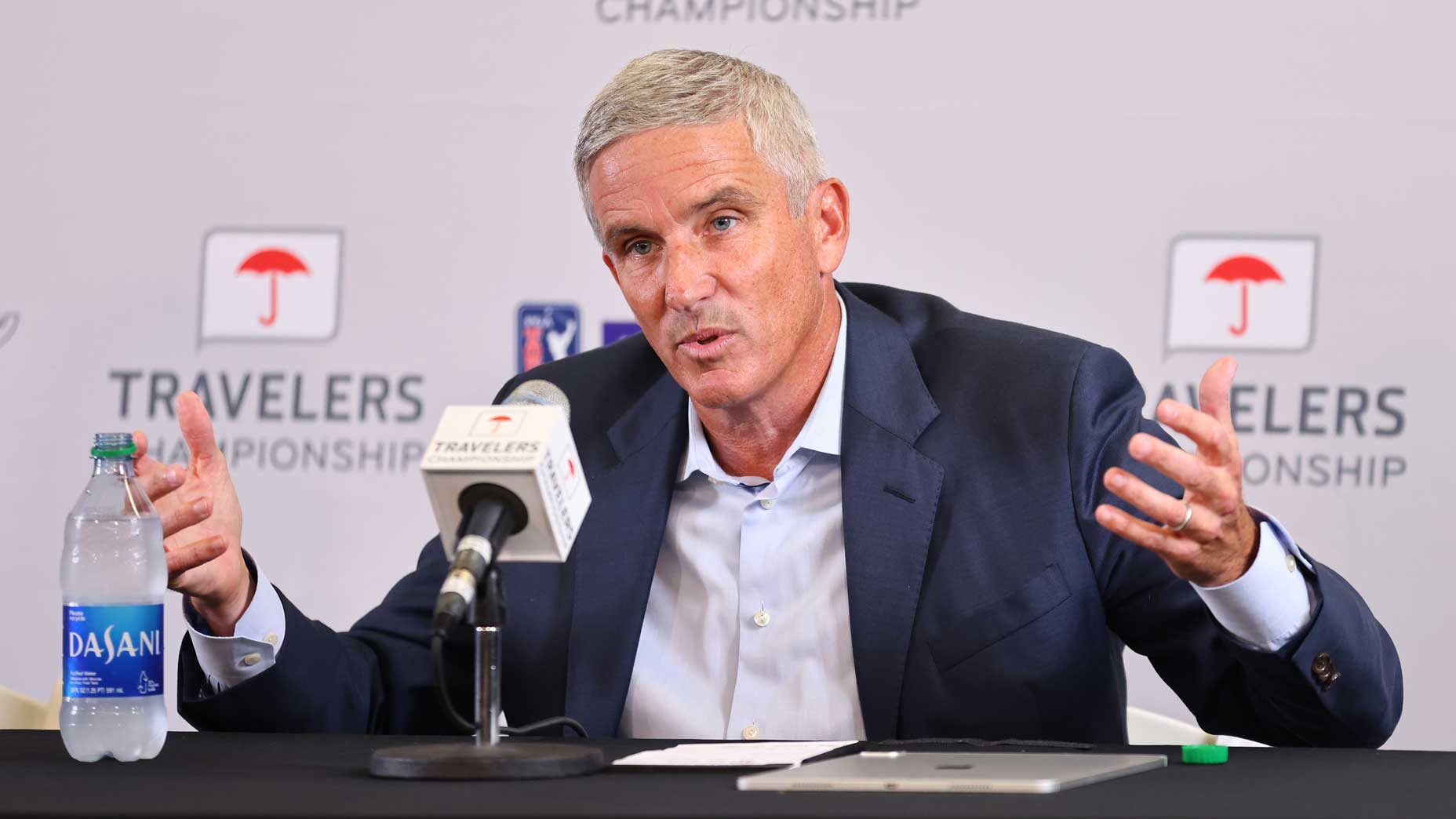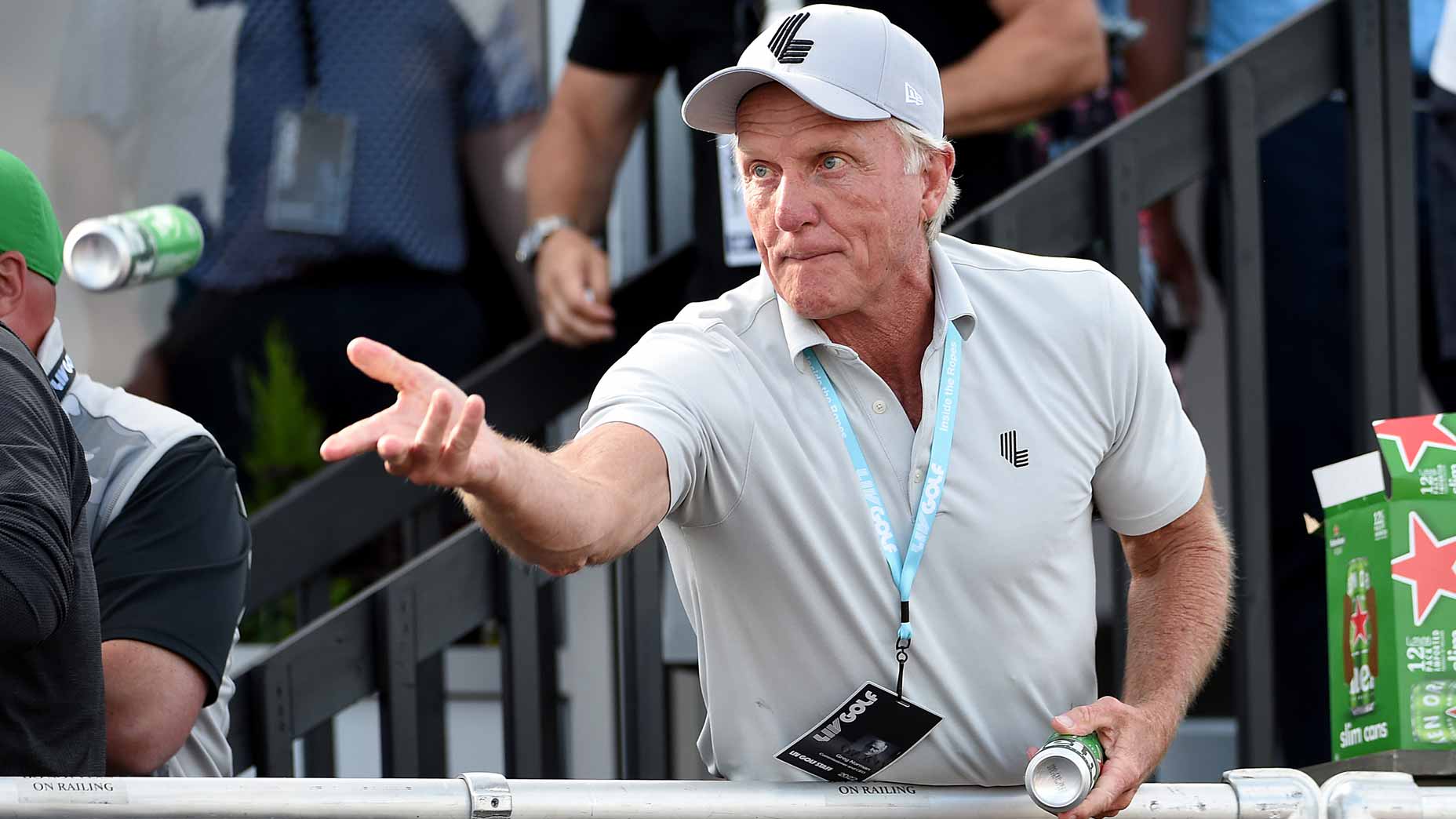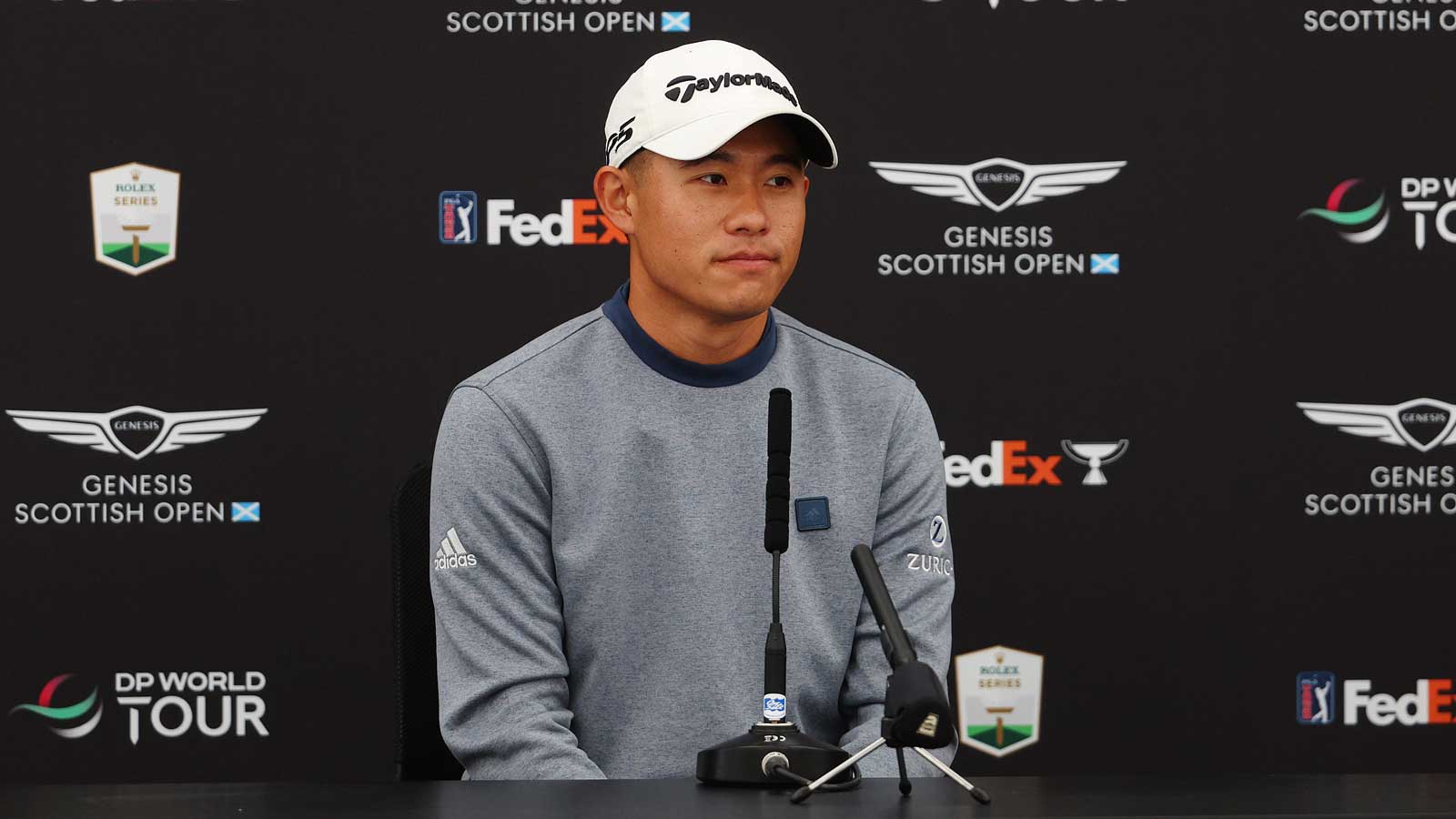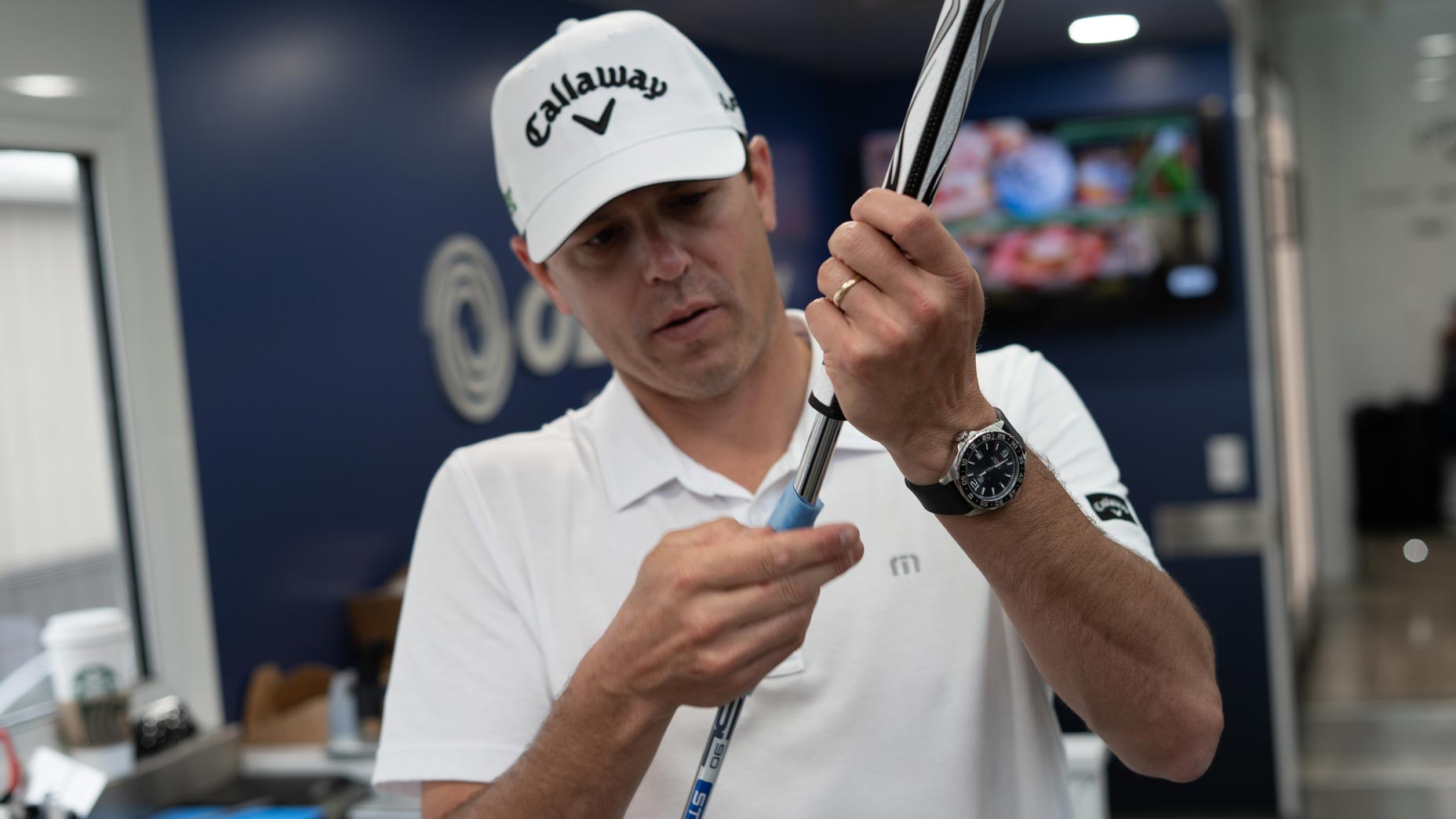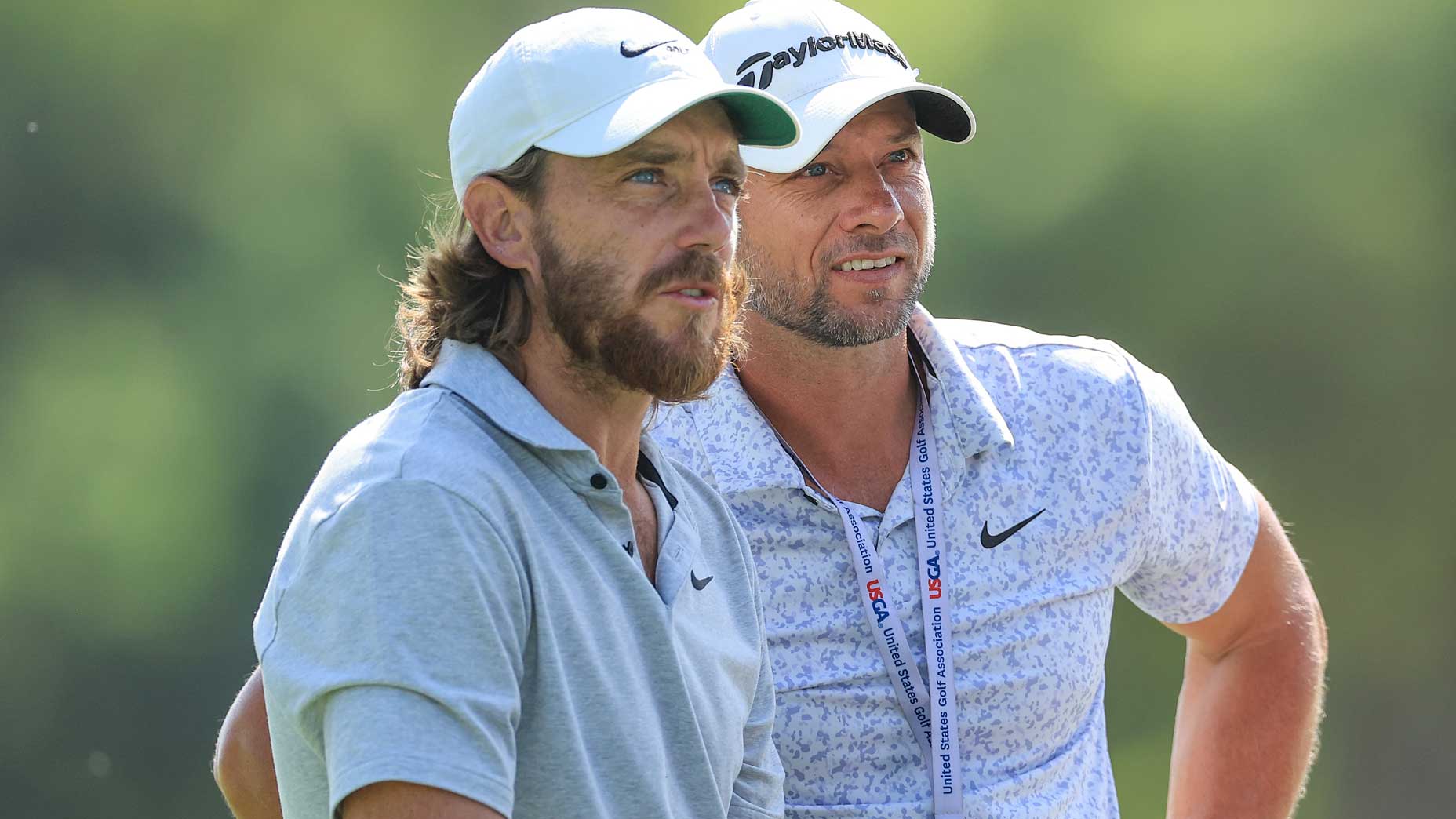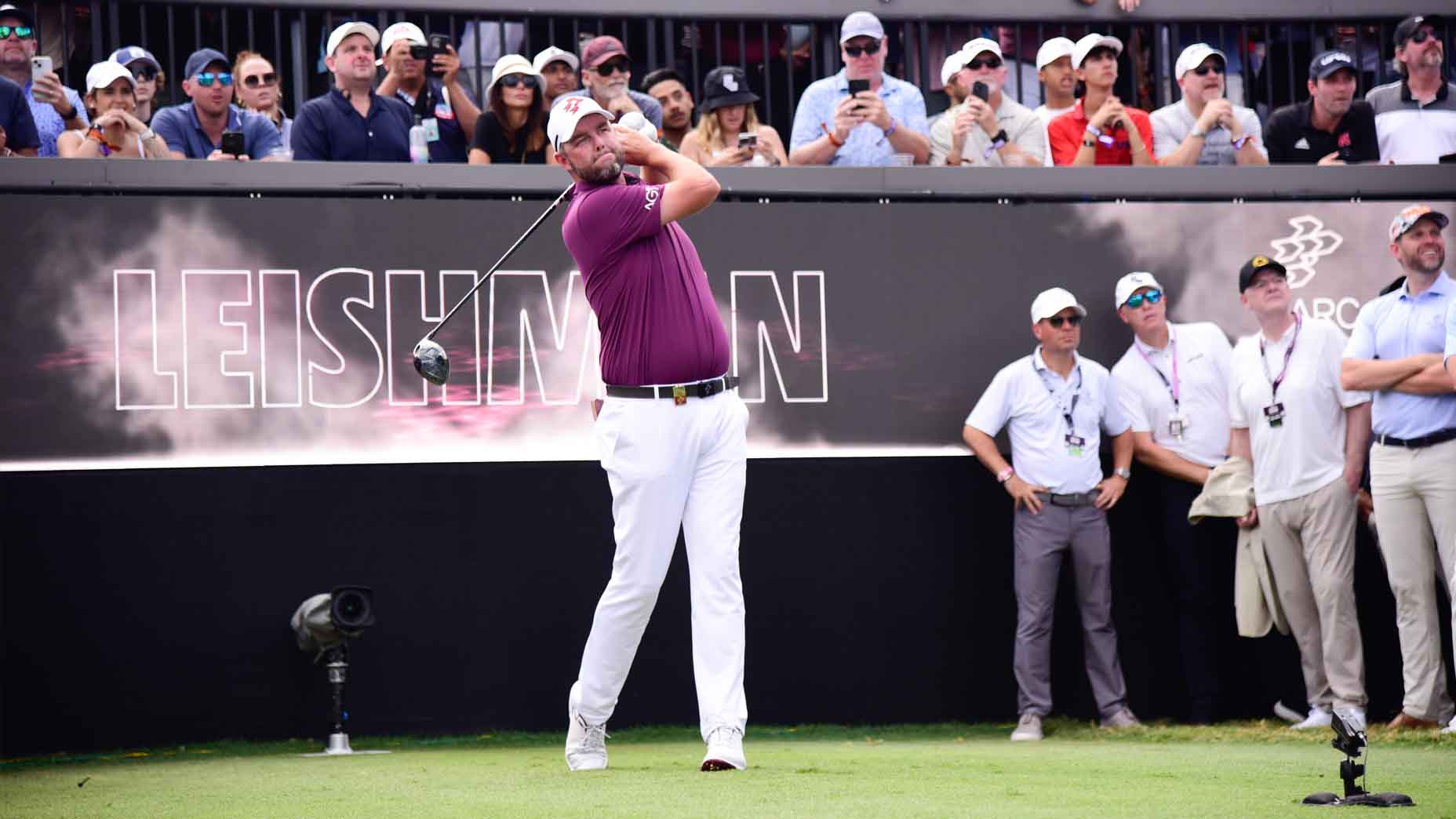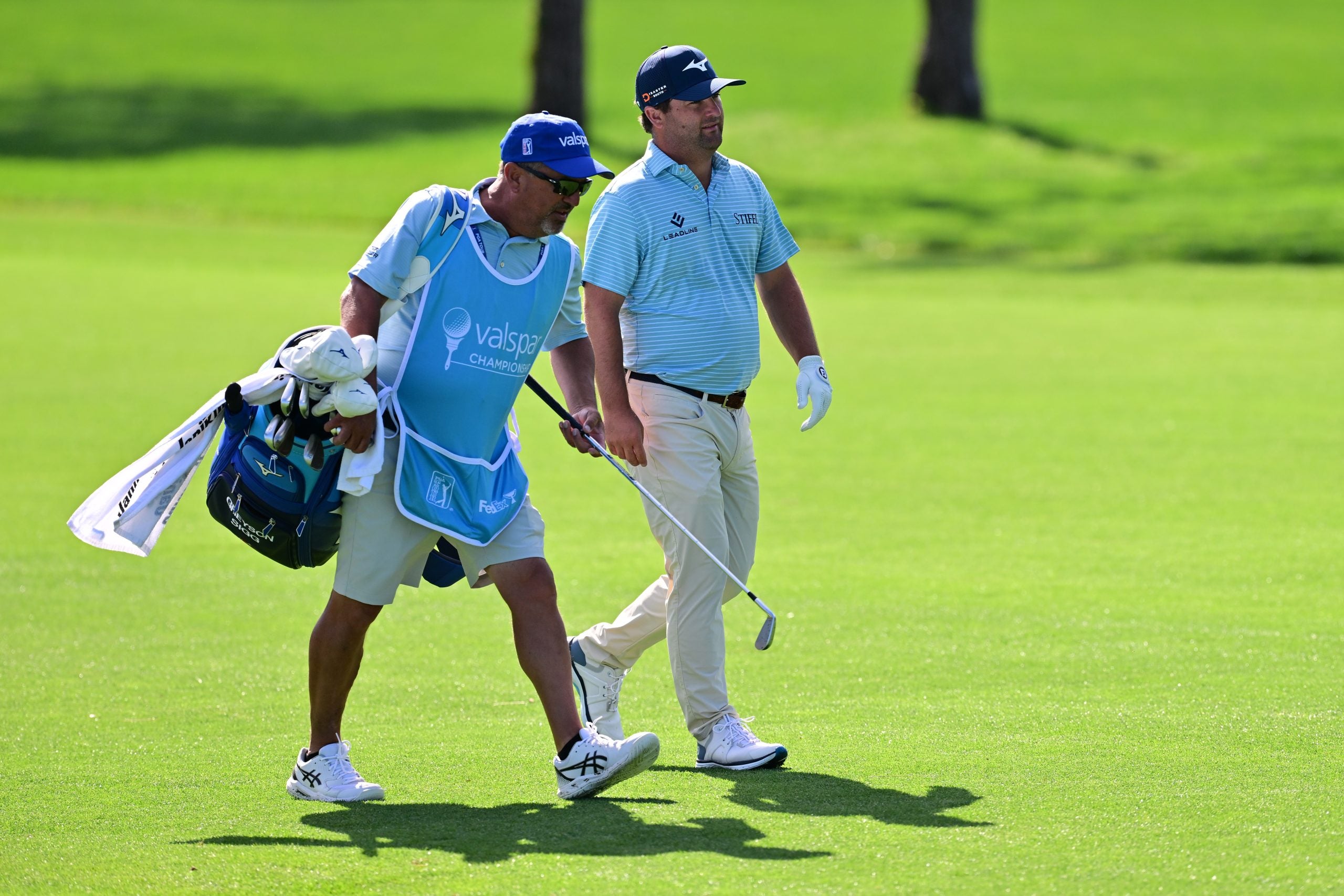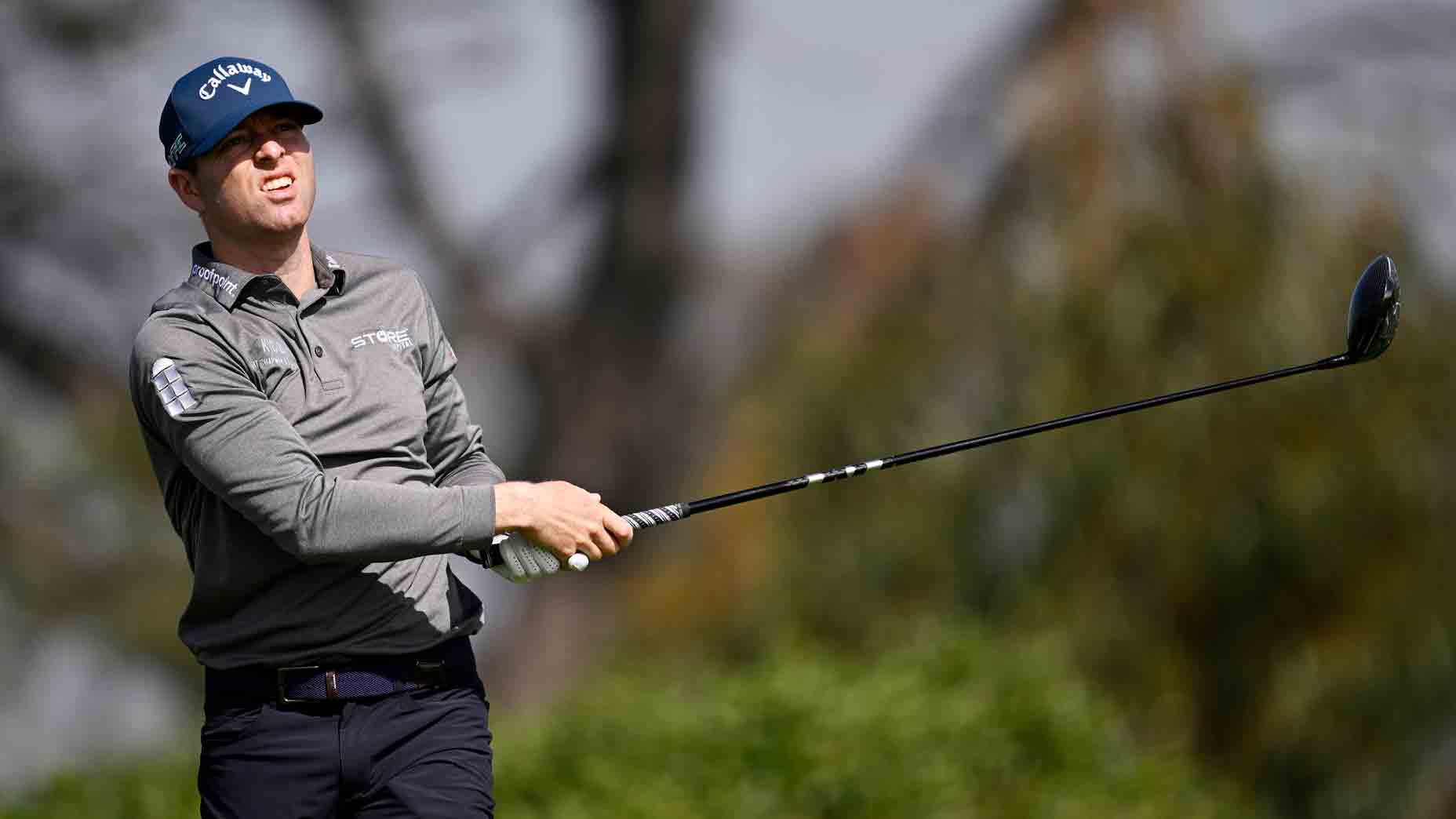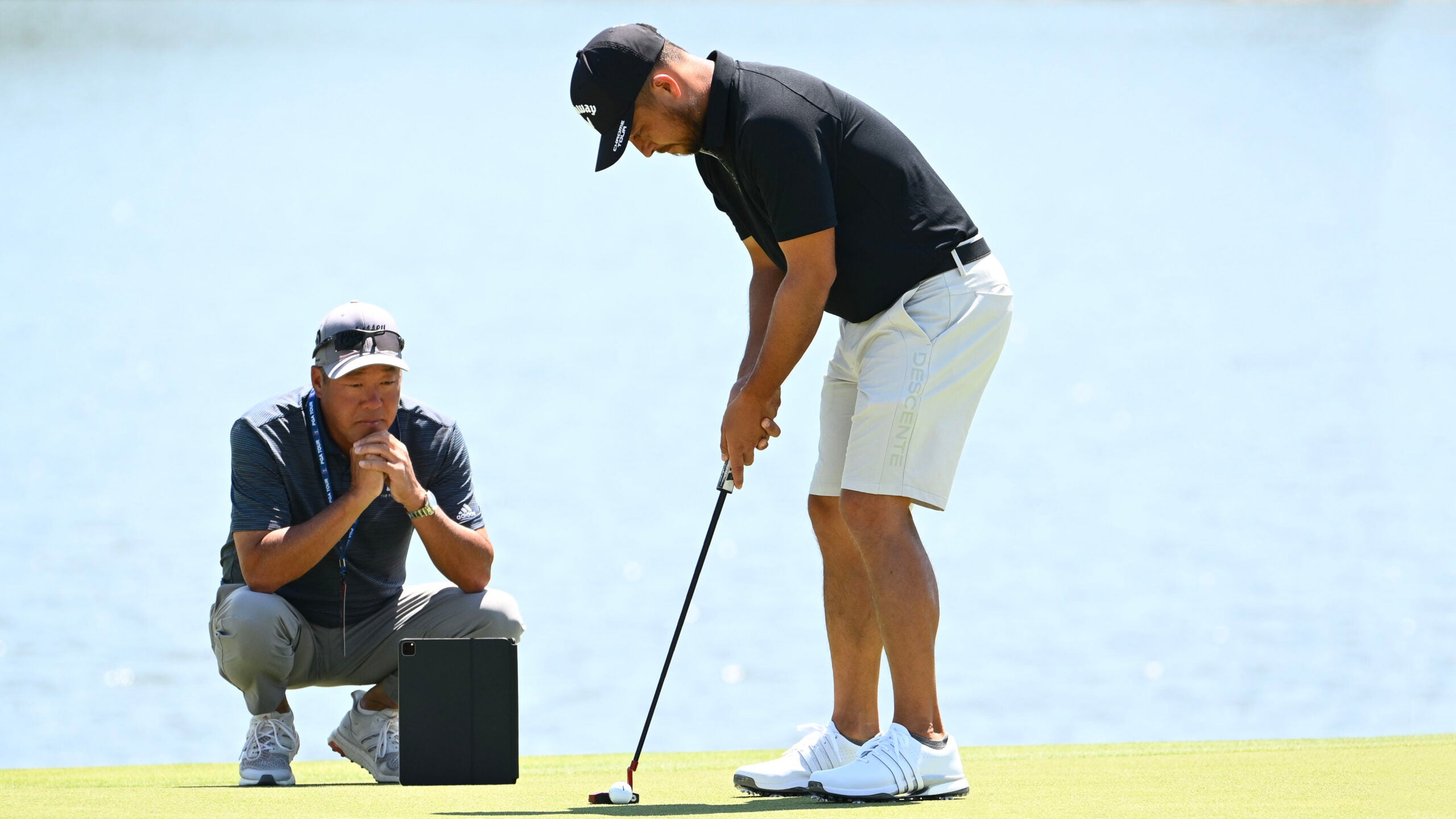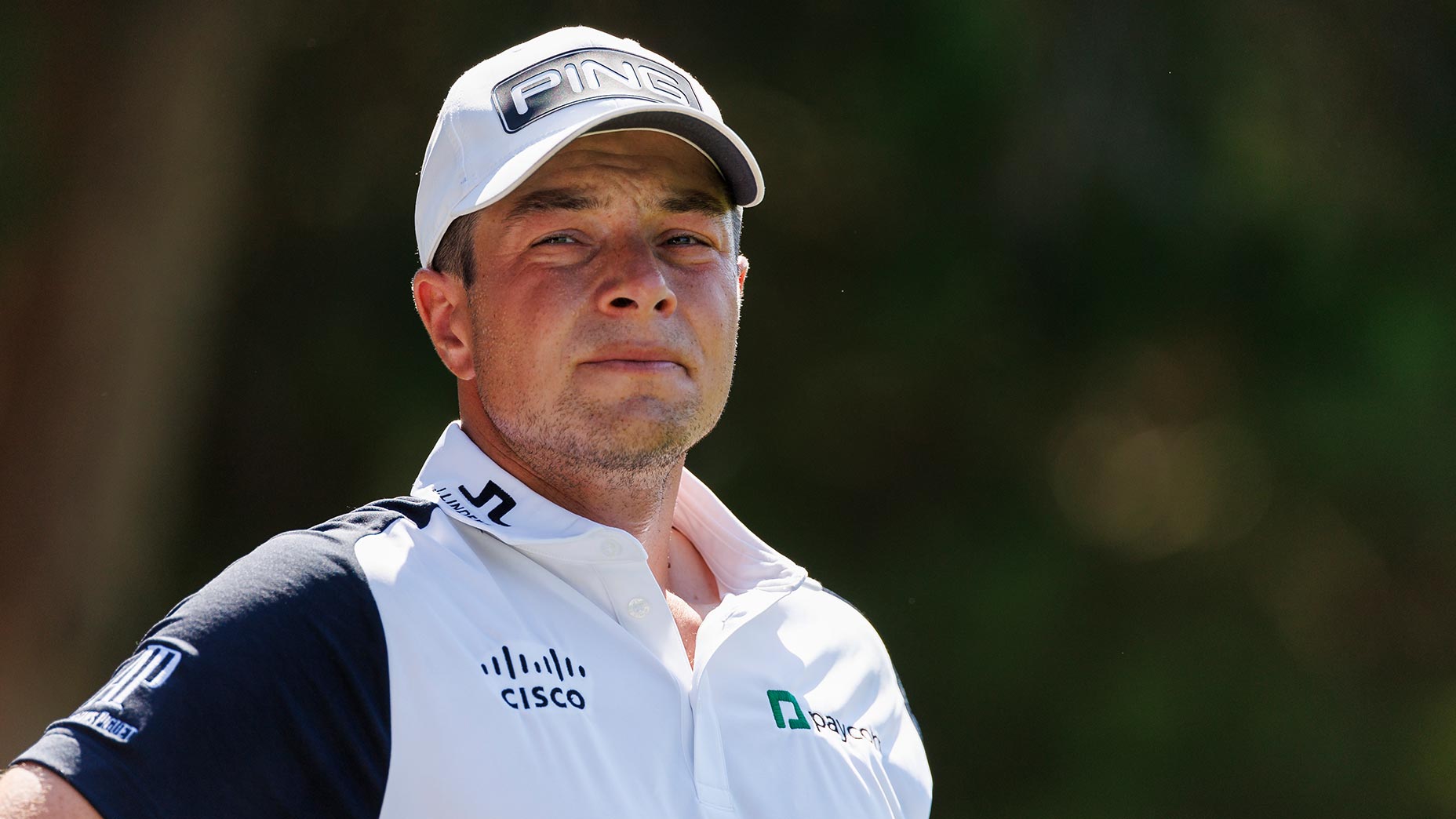A golf war once contained within the boundaries of the game has grown now to where the federal government is getting involved.
Word broke on Monday that the Department of Justice is investigating whether the PGA Tour is engaged in anti-competitive practices as it seeks to thwart a challenge from Saudi-backed LIV Golf. The news, first reported by the Wall Street Journal, was confirmed by a Tour spokesperson in an email to GOLF.com.
The investigation points toward a polarizing question at the heart of the fight over professional golf’s future: Does the PGA Tour have the legal right to sanction players who compete on a rival circuit?
The Tour has long maintained that it does and has acted accordingly.
R&A disinvites Greg Norman from Open Champions dinner at St. Andrews in latest volley in LIV warBy: Kevin Cunningham
Over the past month, it has suspended the memberships of players who competed in LIV’s first two events, in London and Portland, after being denied a waiver by the Tour to do so. The Tour has made it plain that similar consequences await players who take part in future LIV events.
Greg Norman, CEO of LIV Golf, meanwhile, has decried the Tour’s practices as “anti-golfer, anti-fan, and anti-competitive” — all creating what he has called “an illegal monopoly.”
Broadly defined, monopolization is when an entity uses unfair practices to gain or maintain a stronghold on a market. The DOJ’s investigation will look at the Tour’s behavior through that lens.
But monopolization is only one of two main areas of antitrust law, according to Craig Seebald, a partner and antitrust specialist with international law firm Vinson & Elkins.
The other is conspiracy — when two or more entities work together to stifle competition. The DOJ’s investigation is sure to explore that area, too, Seebald said.
Of particular interest, he said, will be whether there has been any improper coordination between the Tour and other entities in the game, including the DP World Tour, the USGA, the R&A and the Masters — all of which, to one degree or another, could play a role in determining where and when LIV golfers get to compete outside of the Saudi-funded circuit.
LIV Golf squabble reaches the courts: 3 players granted spots in Scottish OpenBy: Zephyr Melton
“Ditto with the OWGR,” Seebald said, referring to the Official World Golf Ranking, the organization whose ranking points provide a pathway into the majors and other marquee events. Executives from the PGA Tour, the DP World Tour, the Masters, the R&A and the USGA all sit on the OWGR board.
As part of its investigation, Seebald says he also expects the DOJ to scrutinize the Tour’s alliance with the DP World Tour, which the Tour recently strengthened by upping its investment in its European counterpart from 15 percent to 40 percent.
“Coke doesn’t get to buy a 40-percent interest in Pepsi and dictate where Pepsi can sell,” Seebald said.
The first step in an investigation of this kind is to gather documents and communications. That means “emails, text messages, internal docs, WhatsApp messages — everything,” Seebald said.
That process can take months, and it’s just the start. Antitrust investigations can go on for years.
In the interim, Seebald said that individuals and entities under investigation often modify their behavior while the DOJ is looking over their shoulder, though he said it’s unlikely that the Tour would rescind any of the suspensions or fines it has meted out already. The Tour has not specified the length of those suspensions.
LIV Golf fatigue wearing on PGA Tour stars: ‘We have many other stories’By: Alan Bastable
“More likely it impacts future conduct,” Seebald said of the investigation. “Maybe you don’t permanently suspend people when the investigation is ongoing.”
An investigation of this kind has three possible outcomes, Seebald said. The DOJ could complete its work and decide not to pursue a case; the parties involved could reach a resolution; or the DOJ could bring suit. Seebald said it’s impossible to predict where this case is headed, but that he would not be surprised to see the government bring suit.
This is not the first time the federal government has trained a wary eye on the Tour. In 1994, following a four-year investigation, attorneys for the agency determined that two Tour policies (including the one that requires players to get permission to compete in non-Tour events) violated antitrust laws and recommended that the federal government nullify them. In the end, though, FTC commissioners decided not to pursue a case.
As many avid golf fans know, 1994 was also the year Greg Norman announced his plans to launch a World Tour, an early iteration of the kind of rival concept that LIV now embodies.
This latest investigation is yet another development in a very old fight. And it hardly shocked the Tour, a Tour spokesperson said in an email to GOLF.com.
“This was not unexpected,” the spokesperson said. “We went through this in 1994, and we are confident in a similar outcome.”
